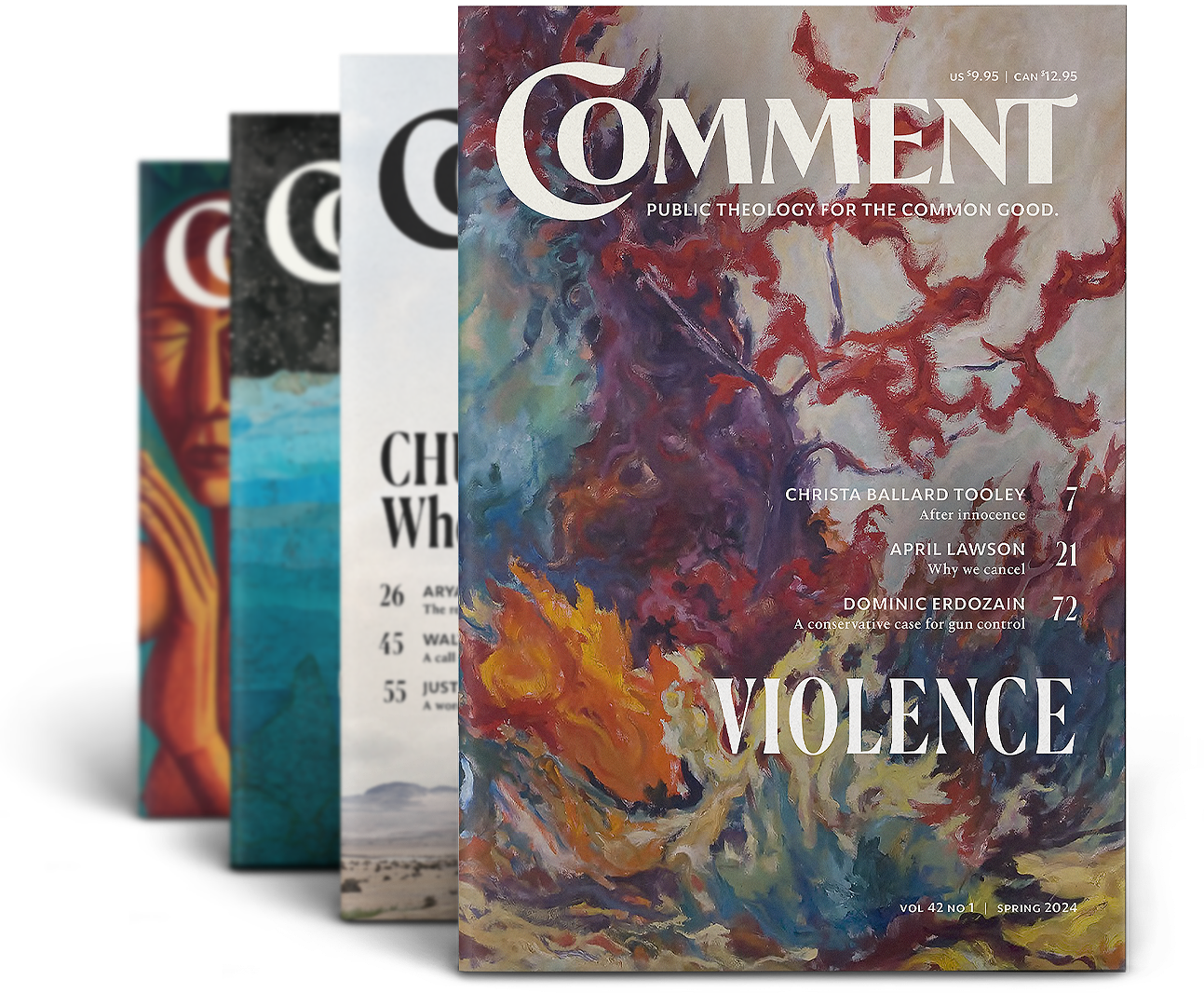The Veritas Forum hosted a commencement speech contest for the class of 2020, together with Comment and Augustine Collective. As Veritas wrote in the invitation to graduating seniors, “Some people describe commencement speeches as “cultural barometers” that offer windows into what our society sees as the purpose of life. We cannot imagine a more important year than 2020 for graduating seniors to write and share their own commencement speeches—not only to serve as markers of this historic year, but also to lament and hope as a collective.”
You can read the other two contest winners here and here.
For years, I knew that 2020 would be the end of the world as I knew it.
No, I’m no doomsayer. Or an epidemiologist. Or even a deep-web conspiracy theorist.
I knew that 2020 would be the year I’d graduate from college. And, that meant the end of my sixteen-plus-year stint as a student, and the beginning of a world I had yet to truly experience. This year, I expected a spectacular ending that forced me to start from scratch.
In short, I expected an apocalypse.
An apocalypse is what I got—what we got. And, it’s changed our lives more than I could have imagined. Due to the COVID-19 pandemic, thousands are dying, millions are unemployed, families and communities are separated, and no one quite knows what the next day might bring.
However, while this time is unexpected, confusing, and tragic, I keep finding tinges of familiarity in the world around me. This notion of the world ending, our daily lives transforming, is not entirely foreign. In fact, it was the plot for countless books I read growing up.
My classmates and I grew up in the boom of the dystopian young adult novel. Our shelves were filled with post-apocalyptic literature—from The Hunger Games to Divergent to The City of Ember. For years, we were fed a literary diet of dystopia. During recess and study hall, we imagined using bows and arrows to hunt food for our malnourished families, discussed which of the five factions in the Divergent series we would belong to, and braced ourselves for the reality of underground living.
We have been taught, year by year, book by book, how to live after the end of the world.
I don’t believe that dystopian novels provide literal how-to guides for post-apocalyptic living. (I do not endorse hosting a vicious, no-holds-barred fight to the death on national TV.) But these books did play an important role in shaping how the class of 2020 views situations that were previously unimaginable.
These books taught us about the importance of resilience. Life does not end following an apocalypse. It adapts. As the citizens in the City of Ember created a new home underground, we too must find creative ways to live in a post-apocalyptic world. I’ve already seen this adaptation from my classmates as we’ve all experienced our own mini apocalypses. When faced with cross-country moves, familial strife, or the intense pressures of college life, we have developed new routines and rhythms and made sense of the new nature of our existence.
We also learned that we need folks to be resilient with. When facing a major enemy in a post-apocalyptic world, our books urged us to find loyal friends and family to walk alongside us. In these past few weeks, we’ve had to create communities in the midst of tragedy, groups of people who provide mutual support, even in the face of worst-case scenarios. Though we’re not able to physically journey through a post-apocalyptic landscape, we have taken to FaceTime and letters and small acts of kindness that encourage us to continue in the face of adversity.
But, most importantly, these books have also shown us what not to do. Regardless of the setting of these novels, there was always a common thread: the way people were living was not okay. Within their pages, our heroes fell victim to corrupt and power-hungry leaders and witnessed the destruction of nature and human life. But our existence is different. We, the class of 2020, have the ability to enact change right now. As we go from here, we can take up our role as adapters, community builders, and creators as our society painstakingly starts from scratch.
While these lessons are helpful, I’m not going to pretend like they will make everything okay. The world we are entering is scary, treacherous, and unknown.
But, although dystopian novels don’t provide the full answer, they do provide an arc. Following the examples of our favourite childhood heroes, we must continue to practice resilience, build supportive communities, and create new things intentionally.
Friends, welcome to the apocalypse. The world as we knew it has ended. And also, as our favourite novels have taught us, this apocalypse is our beginning.


